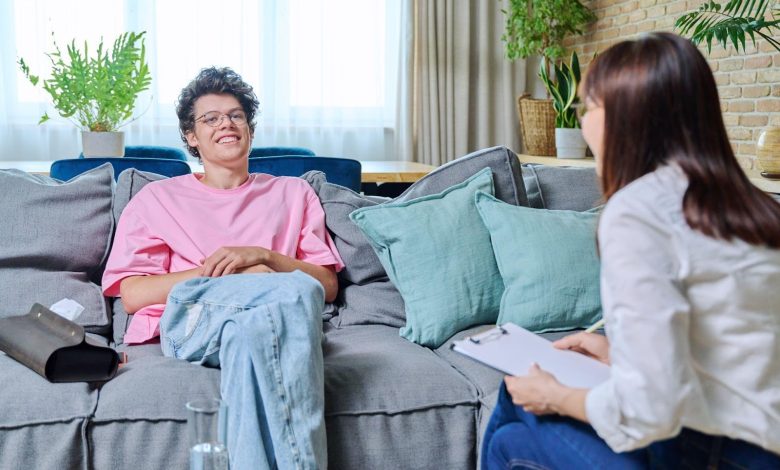
Today, healthcare is changing to help people where they are, like at home. More people are now having doctor visits at home. Whether it’s a regular check-up, a follow-up, or special care, having a doctor come to your house makes things easier and more comfortable than going to a hospital or clinic.
For patients recovering from illness or surgery, or managing chronic conditions, home treatment offers medical, emotional, and psychological benefits. Home visits connect doctors and patients at home, making it easier to get care and feel comfortable. Let’s see how this helps people heal and feel better.
Healing at Home
There’s an undeniable truth in the old saying, “There’s no place like home.” For someone unwell or recovering, being surrounded by familiar sights, sounds, and loved ones can have a powerful healing effect. Hospitals, while essential for acute care, can sometimes feel sterile, noisy, and intimidating.
Home is a quiet and cozy place that helps you relax and feel less stressed. Think about getting better from surgery or sickness in your own bed, with your favorite blanket and family close by. The body responds better when the mind is relaxed, and the comfort of home plays a huge role in that.
Even simple things like sleeping in your own room, having control over your schedule, or eating home-cooked meals can contribute to faster emotional and physical recovery.
Personalized and Attentive Medical Care
Here are some outstanding advantages of home-based consultations.
1. Better Quality of Interaction
When doctors visit patients at home, the quality of interaction improves noticeably. Unlike in busy clinics where attention is divided, home visits allow doctors to focus entirely on one patient, giving time for detailed discussions and observations.
- Deeper Understanding of the Patient’s Environment
During home consultations, doctors can see the patient’s real surroundings. This helps them notice practical details like how comfortably the patient lives, whether medicines are being taken correctly, or if daily habits are affecting recovery.
3. Comfortable Communication
Patients and their families tend to feel more at ease at home. This comfortable environment makes it easy for people to ask questions and talk about their worries. The calm setting helps doctors have natural talks, so they can explain things better and make patients feel relaxed and safe.
- Building Trust and Confidence
The attentive and personal nature of home visits builds stronger doctor-patient relationships. When patients feel listened to and understood, they are more likely to trust the treatment and stick with their recovery.
Convenience and Accessibility for All Age Groups
One of the main benefits of having a consultation at home is convenience. For many people, especially those who find it hard to move around, going to a hospital can be tiring, take a lot of time, and be stressful. Having the consultation at home removes these problems. Elderly patients avoid the physical strain of transport and long waits. Even during emergencies, services like doctor on call Dubai offer a rapid response.
Parents with young children no longer need to manage the chaos of taking an unwell child out. Working professionals save time; a home doctor visit means less disruption to their routine. This access also helps those in remote or underserved areas.
Healthcare is brought to people’s homes and through video calls. This helps those who find it hard to go to a doctor. Getting care this way makes sure everyone gets help quickly, no matter where they are or if they have trouble moving.
Faster Recovery and Better Treatment Compliance
Getting better isn’t just about medicine. It’s also about sticking to your habits and caring for yourself. When you recover at home, it’s easier to follow what your doctor says. You’re less likely to miss visits or forget check-ups because it’s more convenient and comfortable. Care at home helps keep track of your progress and makes sure your recovery continues smoothly.
Doctors can check wounds, change dressings, monitor vital signs, and adjust medications at home, thereby reducing complications and accelerating healing.
It also helps family members or caregivers work together, making sure everyone knows what the patient needs and when to take medicine. Working as a team like this helps the patient get better and stay out of the hospital.
Emotional Well-being and Stronger Doctor-Patient Relationships
Healing is about both feeling emotionally strong and recovering physically. Hospitals can sometimes make patients feel alone or nervous, especially with unfamiliar people and lots of medical activities.
Being at home makes patients feel safer, more supported, and emotionally better. When you call doctor home, the experience becomes more personal and comforting. Talking to doctors at home, with family around, strengthens the relationship and adds a sense of care. Patients also tend to be more honest in their own environment, which helps in providing better treatment.
This emotional connection benefits those with chronic illnesses or long-term care, as regular visits build trust and comfort, positively impacting recovery and well-being.
Conclusion
Home-based consultations represent a beautiful blend of modern medicine and human connection. They make healthcare more accessible, more personal, and far more comfortable for people of all ages. By allowing patients to heal in their familiar surroundings, they not only promote faster recovery but also nurture emotional stability and peace of mind.
The concept is simple yet powerful, bringing care to where it matters most: home. As the healthcare industry continues to evolve, this patient-centered approach reminds us that healing isn’t just about treatment; it’s about feeling cared for, understood, and at ease.
In the end, recovery flourishes where comfort resides, and for most of us, that place will always be home.




